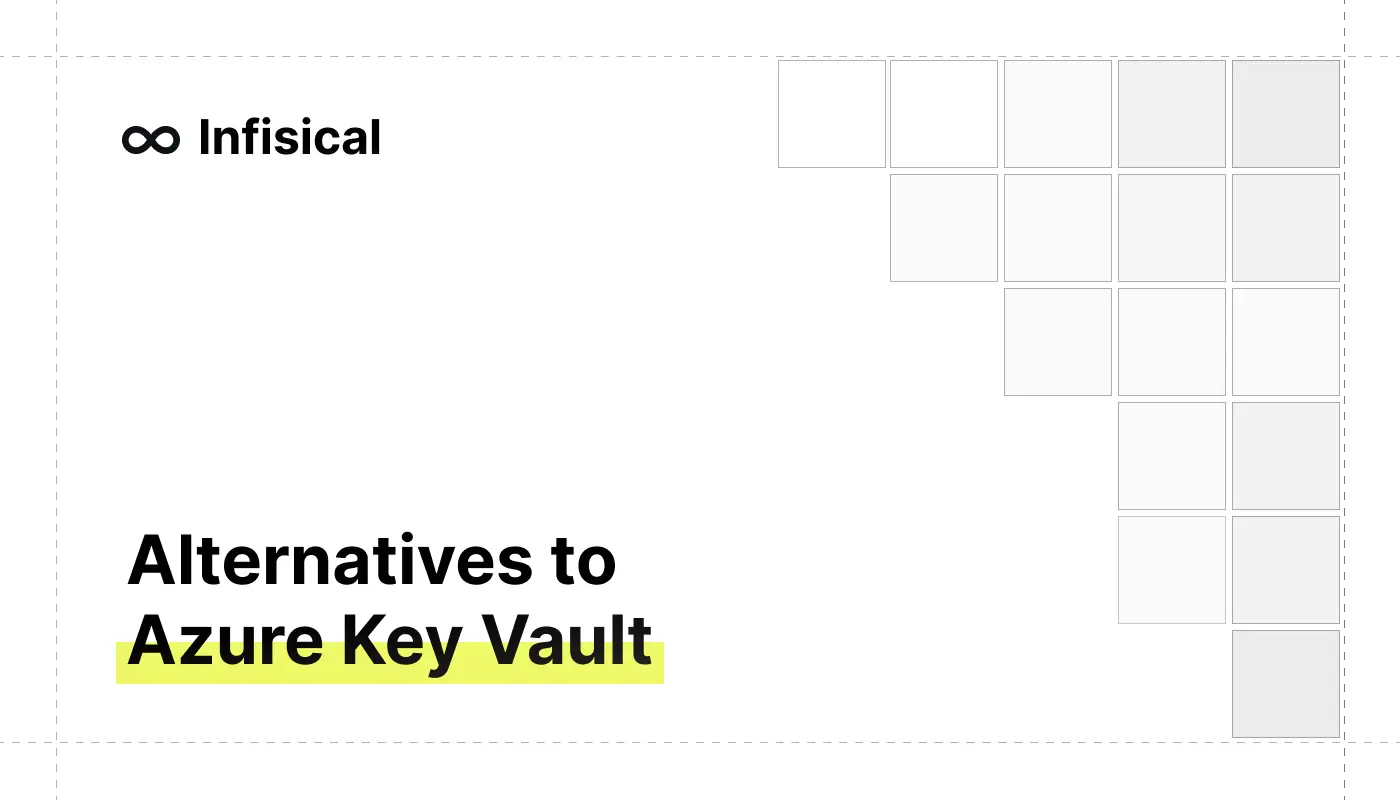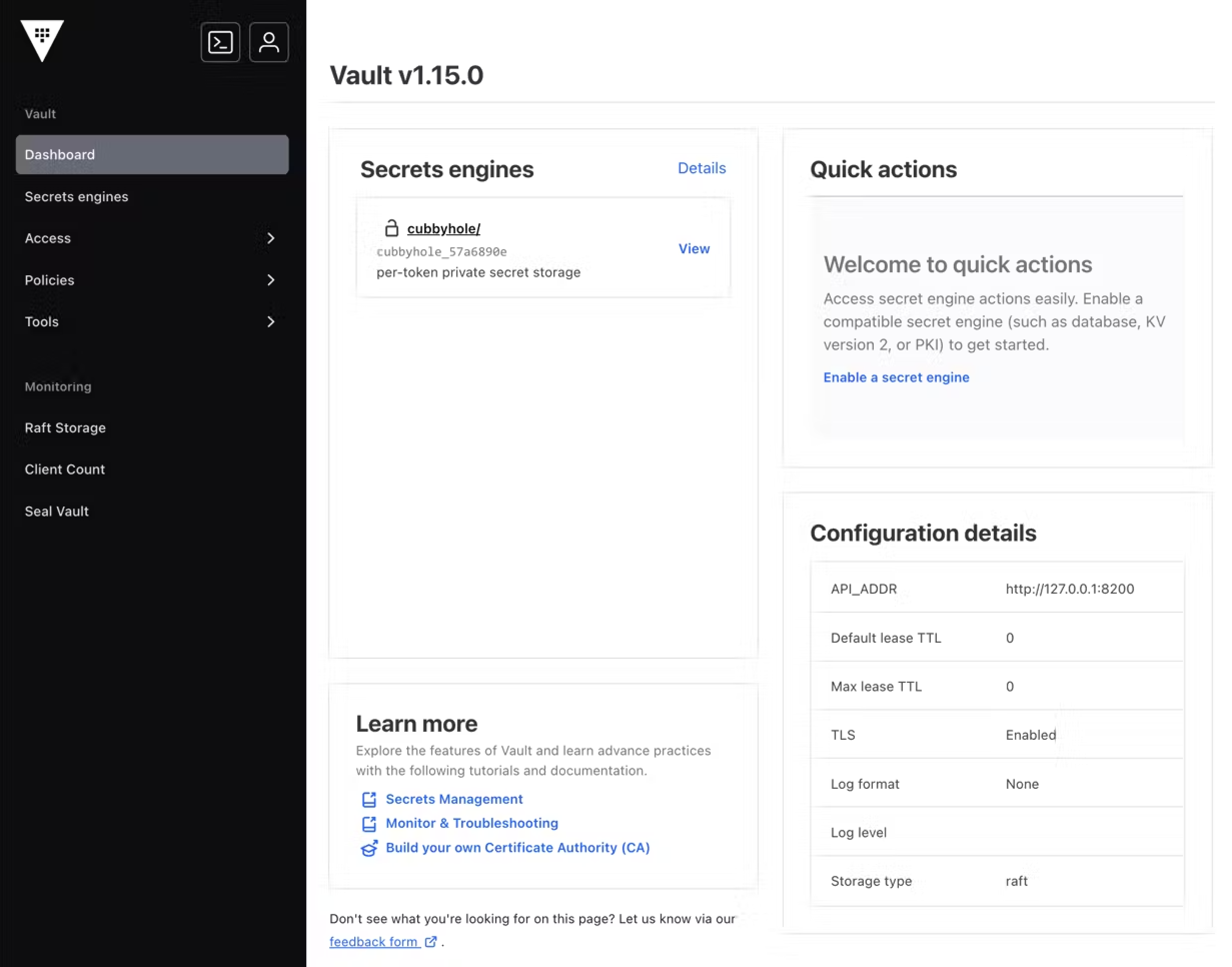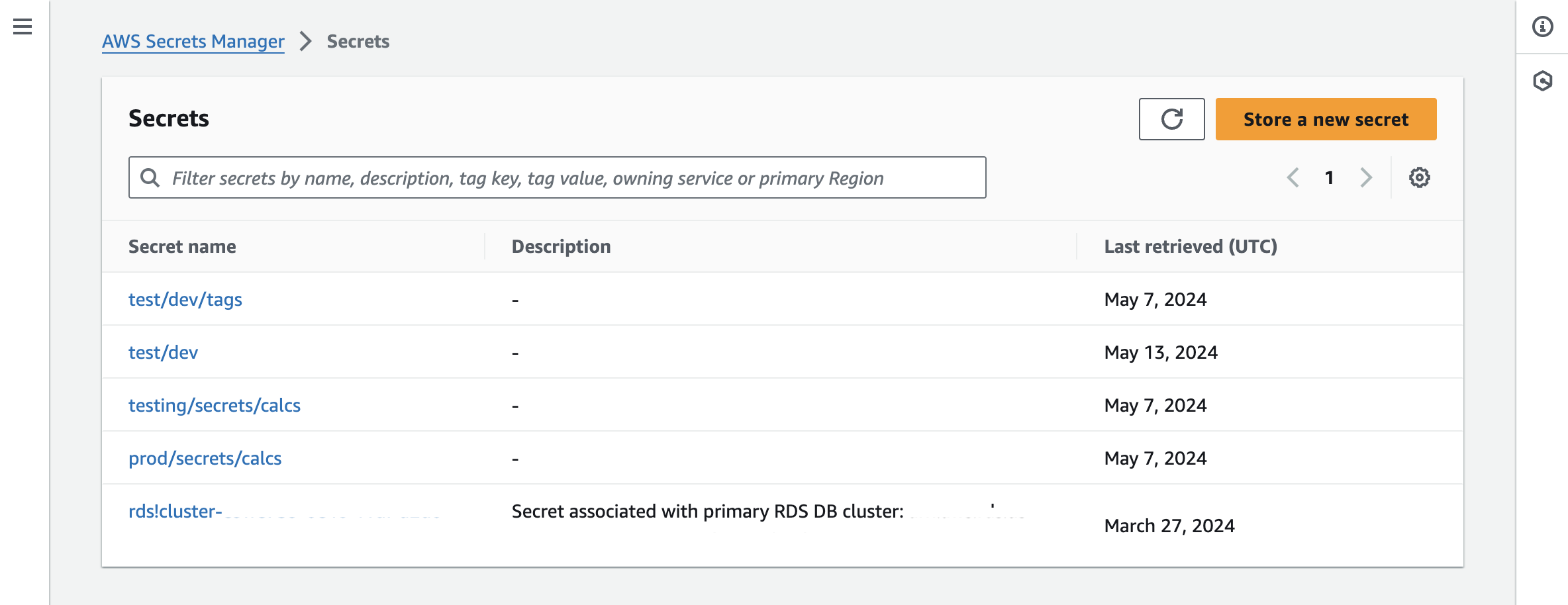
In the world of cybersecurity, managing secrets and credentials securely is crucial. Azure Key Vault is one of the secrets management solutions used by many organizations. However, there are other alternatives available that might fit your organization's requirements better. This articles describes some common alternatives to Azure Key Vault:
1. Infisical
Infisical (that's us 👋) is an open source full-fledged secrets management platform. It provides an end-to-end set of tools that cover all aspects of secrets management. With over 16,000 GitHub stars, it's widely trusted by Fortune 500 enterprises, fastest-growing startups, and international governments.

Key features
Compared to Azure Key Vault, Infisical offers a more comprehensive feature set. Infisical's main product focus areas include:
-
Secrets Management: Manage secrets securely and efficiently across your infrastructure. Integrate with development, CI/CD, and production environments through multiple distribution methods including CLI, SDKs, API, and Infisical Agent.
-
Dynamic Secrets and Rotation: Automatically generate and rotate secrets based on specified settings. Works with all major databases and cloud platforms.
-
Native App Connections: Organization-wide integrations with third-party services for secure secret syncing and dynamic secret generation, with minimal permission sets and robust authentication.
-
SSH Access Management: Issue and manage short-lived SSH credentials to provide secure infrastructure access, eliminating risks associated with static SSH keys and improving access control.
-
Certificate Lifecycle Management (PKI): Create Private CA hierarchies and issue X.509 certificates with automated renewal and distribution.
-
Secret Scanning: Automatically detect and prevent any secret leaks to git and other environments. Over 150+ different secret types are supported with real-time alerting.
-
Secret Sharing: Generate end-to-end encrypted links based on defined security settings – then share these links safely within or outside of your organizations.
-
Access Controls: Implement approval workflows for sensitive changes, temporary access controls, and role-based access management.
-
Enterprise Features: Support for SAML SSO, SCIM, point-in-time recovery, and HSM integration for enhanced security and compliance.
How does Infisical compare to Azure Key Vault?
Given Infisical's main focus, it offers a wider collection of tools in the secrets management realm. Azure's portfolio has a wide range of tools for managing infrastructure, but its Key Vault offering lacks certain functionality that is commonly needed by developers and organizations.
| Infisical | Azure Key <br/>Vault | |
|---|---|---|
| Open Source <br/> Audit code, contribute to roadmap, and build integrations | ✅ | ❌ |
| Self-hostable <br/> Host on your own infrastructure (if required) | ✅ | ❌ |
| Self-serve Upgrade <br/> Free to try, no mandatory sales calls | ✅ | ✅ |
| Dynamic Secrets and Rotation <br/> Automatically rotate database access tokens and more | ✅ | ❌ (only custom) |
| Integrations and Ecosystem <br/> Seamlessly integrate with existing tools in your ecosystem | ✅ | ✅ (often external) |
| Developer Workflows <br/> Self-serve secrets with Approval Workflows, Access Requests, etc. | ✅ | ❌ |
| Secret Scanning <br/> Automatically identify secret leaks to Git and other systems | ✅ | ❌ |
| Secret Sharing <br/> Share secrets secure among people in and outside of your organization | ✅ | ❌ |
| SSH Access Management <br/> Issue and manage SSH credentials with automated lifecycle | ✅ | ❌ (basic storage only) |
| Temporary Access <br/> Grant just-in-time access to secrets with automated expiration | ✅ | ❌ |
| Governance <br/> Audit logs, roles-based access, permissions | ✅ | ✅ |
| Developer Community <br/> Wide developer adoption across the world for better reliability and support | ✅ | ✅ |
Azure Key Vault offers a tiered pricing model with different costs for operations and storage (see our detailed pricing analysis). Infisical, on the other hand, offers a more flexible pricing model with a generous free tier for small teams and startups, making it more accessible to a wider range of organizations.
Why do companies choose Infisical?
There are several compelling reasons:
- Complete Platform: Infisical covers the full secrets management lifecycle in a single tool, from local development to production deployment. It provides extensive integrations with popular developer tools and platforms including Docker, Kubernetes, Terraform, and major CI/CD platforms.
- Flexible Deployment: Organizations can choose between self-hosted and cloud-hosted options, making it suitable for companies with strict security requirements or compliance needs.
- Enterprise-Ready Features: Support for SAML SSO, SCIM, HSM integration, and point-in-time recovery makes Infisical suitable for organizations of all sizes.
- Developer-First Approach: With features like CLI tools, multiple SDKs, and automated integrations, Infisical prioritizes developer productivity while maintaining security.
- Transparent Pricing: Organizations appreciate Infisical's clear pricing structure that scales with growth. The platform offers a generous free tier for teams up to 5 people, with paid plans starting at just $18/month.
- Proven Track Record: With over 16,000 GitHub stars and adoption by Fortune 500 enterprises, startups, and government agencies, Infisical has demonstrated its reliability and security.
2. HashiCorp Vault
HashiCorp Vault and HashiCorp Vault Enterprise are a solution designed to fight secrets sprawl and integrate with DevOps methodologies, enabling businesses to continuously deliver new applications and functionalities without compromising on security. It is focused on managing application identities and providing secure access to cloud resources.

How does HashiCorp Vault compare to Azure Key Vault?
HashiCorp Vault boasts a much larger developer community around its product compared to Azure Key Vault – which is a significantly simpler tool.
One of the benefits of Azure Key Vault is that, unlike Vault Enterprise, it does not require talking to sales to make the purchase (and it is not as costly). Otherwise, HashiCorp Vault provides much more advanced functionality for each of the categories defined below:
| HashiCorp <br/> Vault | Azure Key <br/>Vault | |
|---|---|---|
| Open Source <br/> Audit code, contribute to roadmap, and build integrations | ✅ | ❌ |
| Self-hostable <br/> Host on your own infrastructure (if required) | ✅ | ❌ |
| Self-serve Upgrade <br/> Free to try, no mandatory sales calls | ❌ | ✅ |
| Dynamic Secrets and Rotation <br/> Automatically rotate database access tokens and more | ✅ | ❌ (only custom) |
| Integrations and Ecosystem <br/> Seamlessly integrate with existing tools in your ecosystem | ✅ | ✅ (often external) |
| Developer Workflows <br/> Self-serve secrets with Approval Workflows, Access Requests, etc. | ❌ | ❌ |
| Secret Scanning <br/> Automatically identify secret leaks to Git and other systems | ✅ | ❌ |
| Secret Sharing <br/> Share secrets secure among people in and outside of your organization | ❌ | ❌ |
| SSH Access Management <br/> Issue and manage SSH credentials with automated lifecycle | ✅ | ❌ (basic storage only) |
| Temporary Access <br/> Grant just-in-time access to secrets with automated expiration | ✅ | ❌ |
| Governance <br/> Audit logs, roles-based access, permissions | ✅ | ✅ |
| Developer Community <br/> Wide developer adoption across the world for better reliability and support | ✅ | ✅ |
Why do companies choose HashiCorp Vault?
There are a few main aspects of HashiCorp Vault that users appreciate:
- Security: HashiCorp Vault provides a large number of security configurations for the most advanced a security-focused organizations.
- Automations: HashiCorp Vault provides a very wide range of automations for integrating secrets management workflows across infrastructure, managing certificates, rotating secret values, and more.
- Availability: High uptime and reliability are critical for secrets management. HashiCorp Vault is able to provide high availability (HA) setup for both self-hosted and cloud-managed environments.
3. AWS Secrets Manager
AWS Secrets Manager is a native secrets management solution provided by AWS. It is a fairly simplistic solution, but it might be able to satisfy the needs of certain organizations – depending on the requirements.

How does AWS Secrets Manager comapre to Azure Key Vault?
AWS Secrets Manager is technically very similar to Azure Key Vault – besides the fact that it integrates better with AWS than Azure. On the other hand, it is slightly more popular than Azure Key Vault. This is primarily due to AWS's great distribution advantage and simple integration with other AWS tools.
| AWS Secrets <br/>Manager | Azure Key <br/>Vault | |
|---|---|---|
| Open Source <br/> Audit code, contribute to roadmap, and build integrations | ❌ | ❌ |
| Self-hostable <br/> Host on your own infrastructure (if required) | ❌ | ❌ |
| Self-serve Upgrade <br/> Free to try, no mandatory sales calls | ✅ | ✅ |
| Dynamic Secrets and Rotation <br/> Automatically rotate database access tokens and more | ❌ (only custom) | ❌ (only custom) |
| Integrations and Ecosystem <br/> Seamlessly integrate with existing tools in your ecosystem | ✅ (often external) | ✅ (often external) |
| Developer Workflows <br/> Self-serve secrets with Approval Workflows, Access Requests, etc. | ❌ | ❌ |
| Secret Scanning <br/> Automatically identify secret leaks to Git and other systems | ❌ | ❌ |
| Secret Sharing <br/> Share secrets secure among people in and outside of your organization | ❌ | ❌ |
| SSH Access Management <br/> Issue and manage SSH credentials with automated lifecycle | ❌ (basic storage only) | ❌ (basic storage only) |
| Temporary Access <br/> Grant just-in-time access to secrets with automated expiration | ❌ | ❌ |
| Governance <br/> Audit logs, roles-based access, permissions | ✅ | ✅ |
| Developer Community <br/> Wide developer adoption across the world for better reliability and support | ✅ | ✅ |
Why do companies choose AWS Secrets Manager?
There are mainly 2 reasons for choosing AWS Secrets Manager:
- Ease of starting out: AWS Secrets Manager is easy to get started if your organization is already heavily using AWS. That is, you might already have budget allocated to AWS and may not need an approval for adopting a new AWS-provided tool.
- Integrations with AWS: If you are utilizing only AWS tools across infrastructure, it might make sense to use AWS-native integrations of Secrets Manager. A common exception from this is CI/CD tooling.
4. Building In-House Secrets Management Tools
In the realm of secrets management, organizations often face the decision of choosing between off-the-shelf solutions like Infisical or Vault and developing an in-house secrets management platform tailored to their specific needs. In the past decade, organizations like Lyft, Pinterest, and Segment have committed to building out their own solutions. While this option can offer high customization, it comes with its own set of challenges and considerations.

Pros of Building an In-House Secrets Management Solution
-
Customization: The most significant advantage of an in-house solution is the ability to tailor it precisely to your infrastructure and operational needs. This customization can result in a system that aligns perfectly with your existing workflows, systems, and security policies.
-
Control Over Updates and Changes: With an in-house system, you have complete control over when and how the system is updated or changed. This can be crucial for organizations operating in highly regulated industries or those with strict internal control requirements.
Cons of Building an In-House Secrets Management Solution
-
Resource-Intensive Development: Developing a secrets management solution in-house requires significant time investment in design, development, and testing. This process can divert valuable IT and development resources away from other critical projects.
-
Ongoing Maintenance and Support: Post-deployment, the system will require continuous maintenance to ensure its efficiency and security. This includes regular updates, patches, and security checks, all of which demand dedicated staff and resources.
-
Audit and Compliance Challenges: Custom-built systems can face heightened scrutiny from auditors, especially in industries with stringent regulatory standards. Ensuring compliance and passing audits can be more challenging as auditors may not be familiar with the custom system, unlike widely recognized commercial products.
-
Security Expertise Requirement: Building a secure and robust secrets management system requires a high level of security expertise. This includes not just the initial build but also ongoing threat assessment and response capabilities.
-
Lack of External Support: Unlike commercial solutions that come with vendor support, an in-house system lacks external support. This means any issues or challenges must be addressed internally, which can be a significant drawback in case of complex problems.
-
Training for New Employees: A custom solution requires specific training for new employees, which can be more resource-intensive compared to using a standard, widely-used solution where employees might already have some familiarity or where extensive training resources are readily available.
-
Scalability Concerns: As the organization grows, the in-house solution might need significant re-engineering to scale effectively, which can be a resource-intensive process.
Is Infisical right for you?
Here's our (short) sales pitch.
We're biased (obviously), but we think Infisical is a perfect Azure Key Vault replacement if:
- You are looking for a developer-focused solution that will last you many years ahead. With Infisical, you get much more than just a secure key-value storage (e.g., secret scanning, certificate management, secret sharing, and more).
- You value transparency. We're open source and open core under the MIT license.
- You want to try before you buy. Infisical is self-serve with a generous free tier.
Check out our product page and read our documentation to learn more.
If you have any questions or want to schedule a product demo, you can talk to one of our experts.

